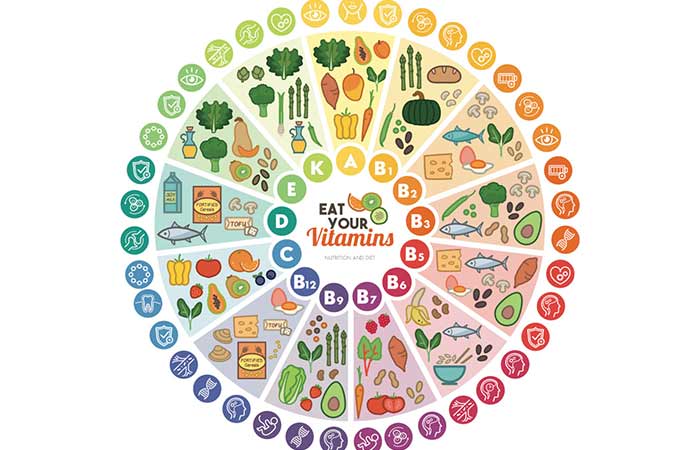Can You Take Vitamins with Probiotics?
Vitamins and probiotics equally play a significant role in our bodies. Whether it’s metabolism, reproductive health, cardiovascular function, among other benefits, they are both beneficial to the chemical processes in the body. The question is whether they can work together.
Taking supplements for vitamins and probiotics is a great way of feeding the body with essential minerals, bacteria, and nutrients, which means it’s best to take both. However, they are best absorbed at different times, and function quite differently.
Fat-soluble vitamins like A, D, E, and K are best taken with food, and water-soluble vitamins like B and C can be taken alone. On the other hand, probiotics can be taken any time as long as the acidity in the stomach isn’t too strong that may destroy its good bacteria.
To better answer this query, we had a look at four common vitamin supplement choices, D, C, B12, and prenatal vitamins. We shall look at how they interact if they can interact, plus any side effects whether negative or positive that may arise.
Vitamin D
Vitamin D falls into the group of fat-soluble vitamins which means you’re required to intake them alongside or after meals to avoid an upset stomach. Probiotics ideally can be taken at any time depending on the particular species and strains in the product. Pairing the two shouldn’t have any side effects unless you’re intaking the supplements on an empty stomach.
While that’s great for the probiotic to surpass the stomach acids, vitamin D may cause nausea, acid reflux, or more side effects. However, the two have no side effects while taken together.
In fact, researchers claim that probiotics can assist in the absorption of vitamins in the body. Specific strains greatly increase its absorption levels, in turn, leading to greater benefits such as decreased bone loss, improved calcium balance, prevention of secondary hyperparathyroidism, and increased bone resorption.
Prenatal Vitamins
Vitamins are very essential for pregnant women, more so as a health boost. A lot of studies into probiotics and prenatal vitamins have concluded that there’s an overwhelming impact on the overall health of both the baby and the mother. It provides support and the necessary nutrients needed during that period.

Probiotics in the mixture will aid the baby to acquire beneficial bacteria that builds up the immunity of the baby and the mother at large. The vitamins will be better absorbed by the mother and the flora in the probiotics will be easily inherited from the mother to the baby. Amongst other benefits could include;
- Improved digestive health
- Improved immune system
- Promoted and strengthened stomach lining
- A decrease in the growth of bad bacteria
- Improved body stability
These are just the general benefits, however, there could be more benefits depending on the prenatal vitamins. For example, vitamin B can aid with gut health like nausea, gas, constipation, vomiting, and stomach upsets.
More research on probiotics and prenatal vitamins reveals that the probiotics such as Lactobacillus Rhamnosus strain HN001 along with several vitamins like B6 can side with depression, anxiety, and other mental disorders. Moreover, the studies further suggests the probiotics could support the baby’s immune system and prevent eczema and other allergies.
Vitamin C
Ascorbic acid is an essential vitamin that builds the immune system, which in turn protects against diseases, conditions, and infections.
Studies have shown that taking vitamin C supplements along with probiotics not only gives great results but has numerous benefits in children and adults.
There have been studies that suggest a beneficial effect of reduced common cold symptoms as well as other upper respiratory tract infections.
In conjunction with several probiotic species and strains such as Lactobacillus Plantarum NCIMB 8826 or Lactobacillus reuteri F275, the probiotics and vitamin C supplements have been proven to prevent respiratory infections and act as an anti-inflammatory primer. Vitamin C has also been shown to hinder the pro-inflammatory cytokine response in monocytes and lymphocytes.
Vitamin B12
Vitamin B is a water-soluble vitamin that can easily be taken without food. It’s naturally absorbed in the body as would vitamin C and beta-carotene. Along with probiotics, they are absorbed faster and cause minimal side effects.
Vitamin B12 also known as cobalamin is essential in the regeneration of red blood cells in the body. Taken alongside probiotics, they have been known to synthesize seamlessly allowing for the body to realize numerous benefits including decreased signs of anemia and mood changes.
Several probiotic multivitamins are said to work well for the body with little or no side effects on the body unless someone has allergic reactions or otherwise with specific strains of probiotics used.
Otherwise, there are no documented negative side effects of the interaction between this vitamin and probiotics.
However, you shouldn’t take vitamin B12, prenatal vitamins with folic acid, and probiotics as the probiotics will increase the synthesis of the vitamins which shouldn’t be introduced to the body together. There could be potential risks and side effects.

Final Thoughts
Vitamins taken alongside probiotics with other forms or botanicals has proven to be advantageous and beneficial to the body. There is greater assimilation of vitamins plus it’s safer as there haven’t been any great side effects except the usual nausea, vomiting, or constipation.
The two can work together but there are several matters to consider including directions of use, dosage, quantity, types of vitamins, and presence or absence of food. To be o the safe side, taking the two in with or after food has been said to have the best results. Besides, people experience less discomfort and gain much more benefits this way.
Sources
- https://www.rochesterregional.org/news/2020/07/vitamins-supplements-probiotics
- https://www.hyperbiotics.com/blogs/recent-articles/76433283-why-prenatal-vitamins-and-probiotics-go-hand-in-hand
- https://www.sciencedirect.com/science/article/abs/pii/S0091674911002788
- https://www.optibacprobiotics.com/uk/learning-lab/in-depth/general-health/probiotic-supplements-for-vitamin-d-absorption
- https://www.sciencedirect.com/science/article/pii/S2352396417303663
- https://www.ncbi.nlm.nih.gov/pmc/articles/PMC4351422/